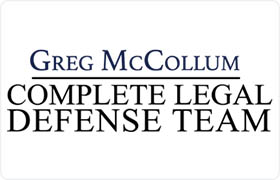Myrtle Beach Felony Lawyer, South Carolina, page 7
Sponsored Law Firm
-
 x
x

Click For More Info:
-
Greg McCollum Complete Legal Defense Team
1012 38th Avenue North Suite 202 Myrtle Beach, SC 29577» view mapCriminal Defence Law Complete Legal Defense Team
Our goal at the Complete Legal Defense Team is to examine the facts and circumstances completely and help our clients.
800-634-0690
Not enough matches for Myrtle Beach Felony lawyer.
Below are all Myrtle Beach Criminal lawyers.
Thomas C. Brittain
Criminal, Sexual Harassment, Accident & Injury, DUI-DWI, Mass Torts
Status: In Good Standing *Status is reviewed annually. For latest information visit here
Gregory Hembree
Wrongful Death, Personal Injury, Criminal, DUI-DWI, Workers' Compensation
Status: In Good Standing *Status is reviewed annually. For latest information visit here
William Henry Monckton VI
Criminal, Personal Injury
Status: In Good Standing *Status is reviewed annually. For latest information visit here
William H. Monckton
Criminal, Accident & Injury
Status: In Good Standing *Status is reviewed annually. For latest information visit here Licensed: 33 Years
Francis A. Humphries
Lawsuit & Dispute, Criminal, Personal Injury, Accident & Injury, Workers' Compensation
Status: In Good Standing *Status is reviewed annually. For latest information visit here
W. Baxter Harwell
Criminal, DUI-DWI, Traffic, Car Accident, Wrongful Death
Status: In Good Standing *Status is reviewed annually. For latest information visit here
Mallary Winter Hitchcock
Real Estate, Criminal, Business, Accident & Injury
Status: In Good Standing *Status is reviewed annually. For latest information visit here
Laura L. Hiller
Criminal
Status: In Good Standing *Status is reviewed annually. For latest information visit here
Craig Anderson Snook
Criminal
Status: In Good Standing *Status is reviewed annually. For latest information visit here
David R. Gravely
International Tax, Patent, Divorce & Family Law, Criminal
Status: In Good Standing *Status is reviewed annually. For latest information visit here
 Greg McCollum Myrtle Beach, SC
Greg McCollum Myrtle Beach, SC AboutGreg McCollum Complete Legal Defense Team
AboutGreg McCollum Complete Legal Defense Team Practice AreasExpertise
Practice AreasExpertise